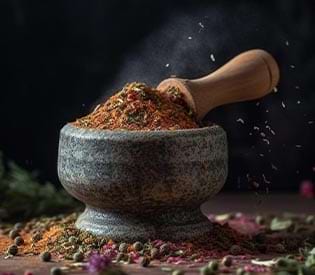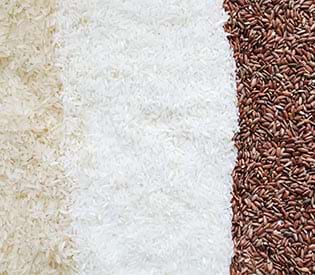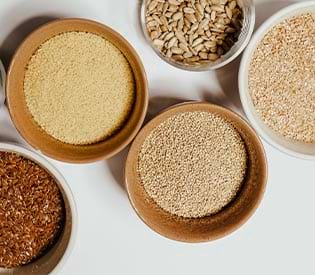Stone Root
📦🚚 Fast & Free shipping on all orders
What is stone root?
A perennial herbaceous plant in the mint family is called Collinsonia canadensis. Stone root is a rough, knobby root that is native to eastern North America. It bears tiny, yellow blooms that smell like lemons. Due to its many health benefits, traditional herbal methods have long used this pungent and peppery root. Decoction or liquid extraction are common methods for preparing stone root. The plant is well-known for its peculiar smell, which is characterized as having an unpleasant, lemony aroma. The root is hefty and very hard, making it difficult to powder or grind. The discovery and naming of the plant honored the English botanist Peter Collinson. Other popular names for this plant include richweed, horse balm, and citronella.
How do I use stone root?
Well, shake before using. Adults: Mix one squeeze of the dropper bulb with two ounces of juice or water two to four times a day.
Stone root benefits:
Urinary tract issues, such as stones in the kidney and other urinary system locations, excessive uric acid in the urine, and bladder discomfort and swelling (inflammation), are all treated with stone root. Additionally, it is utilized to promote urine flow to reduce edema, or water retention.
◉ May Support the Urinary System: According to conventional research, collinsonia root may benefit the genitourinary system in a positive way. The kidneys, ureters, bladder, and urethra constitute the genitourinary system, which is responsible for filtering blood and excreting poisonous waste via urine. For the elimination of these harmful residues, every organ must be operating at maximum capacity. According to legend, the Iroquois tribe of Native Americans treated renal problems using collinsonia root. This phenomenon may be the effect of the diuretic properties of stone root, which raise urine flow to flush out excess water from the body. Additionally, these reports imply that modern herbalists may use stone root to relieve urinary system discomfort.
David Hoffmann, an AHG-certified herbalist, lists Collinsonia canadensis as a natural remedy for "the treatment and prevention of stone and gravel [kidney stones] in the urinary system and gallbladder." He goes on to mention that kidney stone treatment is another benefit of collinsonia root. In her herbal publication, A Modern Herbal, famous herbalist Maud Grieve says that stone root might be used for "complaints of urinary organs, gravel [kidney stones], and catarrh of the bladder [bladder inflammation]." She claims that the most effective herbal cure for resolving these problems is a decoction of the fresh root.
In their medical treatise, The King's American Dispensatory, doctors Felter and Lloyd from the 19th century state that using Collinsonia canadensis has "not without beneficial results in toning the renal organs and allaying irritation consequent upon the presence of gravel." This implies that collinsonia root aids in lowering renal inflammation. Reputable herbalists and traditional accounts claim that colinsonia root may be beneficial in preventing and treating hemorrhoids. The growth and irritation of the rectal veins is known as hemorrhoids. They might be external or internal, often resulting in pain, discomfort, and sporadic bleeding. Herbalist David Hoffmann lists collinsonia root as a traditional remedy for hemorrhoids and "pain in the rectum" in his book Medical Herbalism. For bothersome hemorrhoids, the American Botanical Council suggests using collinsonia root to reduce irritation. They propose that the healing of hemorrhoids may be attributed to the potent anti-inflammatory substances, such as flavonoids and saponins, that are present in Collinsonia canadensis.
Stone root, according to herbalist M. Grieve, is helpful for "complaints of the rectum." Drs. Felter and Lloyd, two eclectic doctors, state that collinsonia root is "useful...in hemorrhoids where there is rectal irritation." They also mention that Collinsonia canadensis is one of the best herbs for "hemorrhoids and constipation caused by swollen veins in the pelvic area."
◉ May Support Larynx Issues: Based on conventional research, collinsonia root may help with upper respiratory tract issues by alleviating certain laryngeal disorders. The respiratory tract includes the cartilaginous larynx. It serves as a barrier against food particles entering the lower respiratory system when eating and houses the vocal cords, sometimes referred to as the vocal box.
Studies suggest that the active ingredients in stone root may be responsible for its potential mucosa-soothing effects. The mucosa is the mucous membrane that lines and lubricates the organs. Stone root may have a calming effect on mucosa due to mucilage found in the roots, according to Maude Grieve. Certain plants contain a viscous cooling material called mucilage. Felter and Lloyd note in The King's American Dispensatory that this plant was formerly used to cure "laryngitis known as minister's sore throat." Collonia root is "equally valuable in other forms of chronic laryngitis, pharyngitis, and in some cases of chronic bronchitis and tracheitis," according to their suggestion.
◉ May Improve Wound Healing: According to herbalist M. Grieve, using stone root leaves externally (as a poultice) may be a useful herbal treatment for cuts, bruises, sores, and wounds. The aerial sections of stone root may "improve capillary function, which aids in the healing of skin wounds," according to a study of the plant.
Where can I buy Stone Root?
Buy stone root from the health food store in the USA, Alive Herbals.
Stone Root information (at a glance):
| Product Name | Stone Root |
| Scientific Name | Collinsonia canadensis |
| Country of Origin | It is native to USA |
| Ingredient | Stone Root. |
| Taste & Aroma | Aroma: Its distinct odor. Taste: spicy and sour in taste. |
| Shelf Life & Storage | Shelf Life is about 06 - 24 months. Store it in an airtight container in a cool, dry place and prevent sunlight exposure. |
| Precautions | We requested you, Before consuming spices, herbs, teas or any kind of natural products you consult an expert qualified healthcare practitioner or herbalist. |
| Note | This product information has not been appraised by the Food and Drug Administration (FDA). This information is solely intended for educational purposes. |







